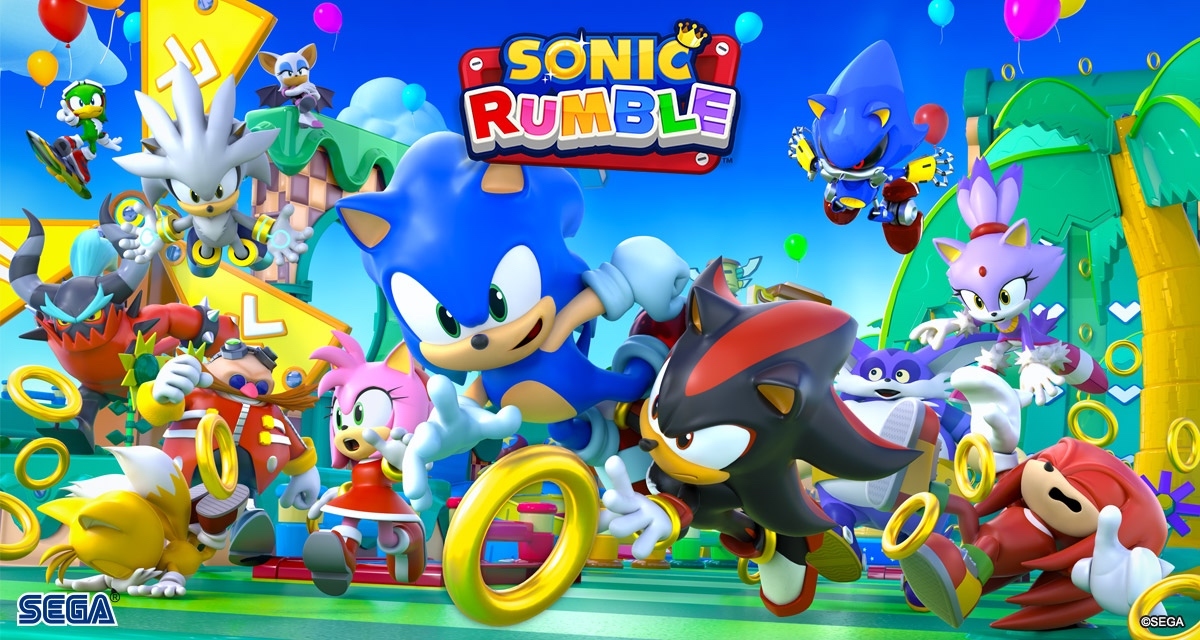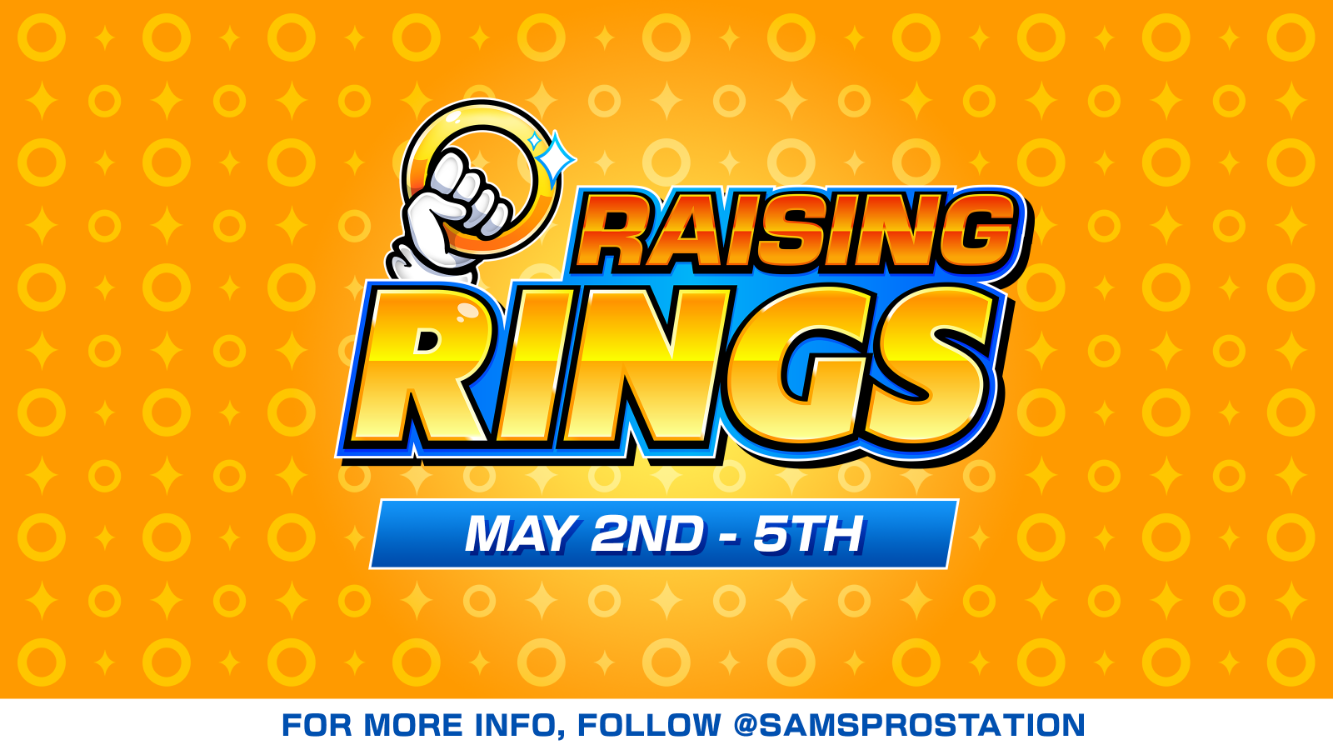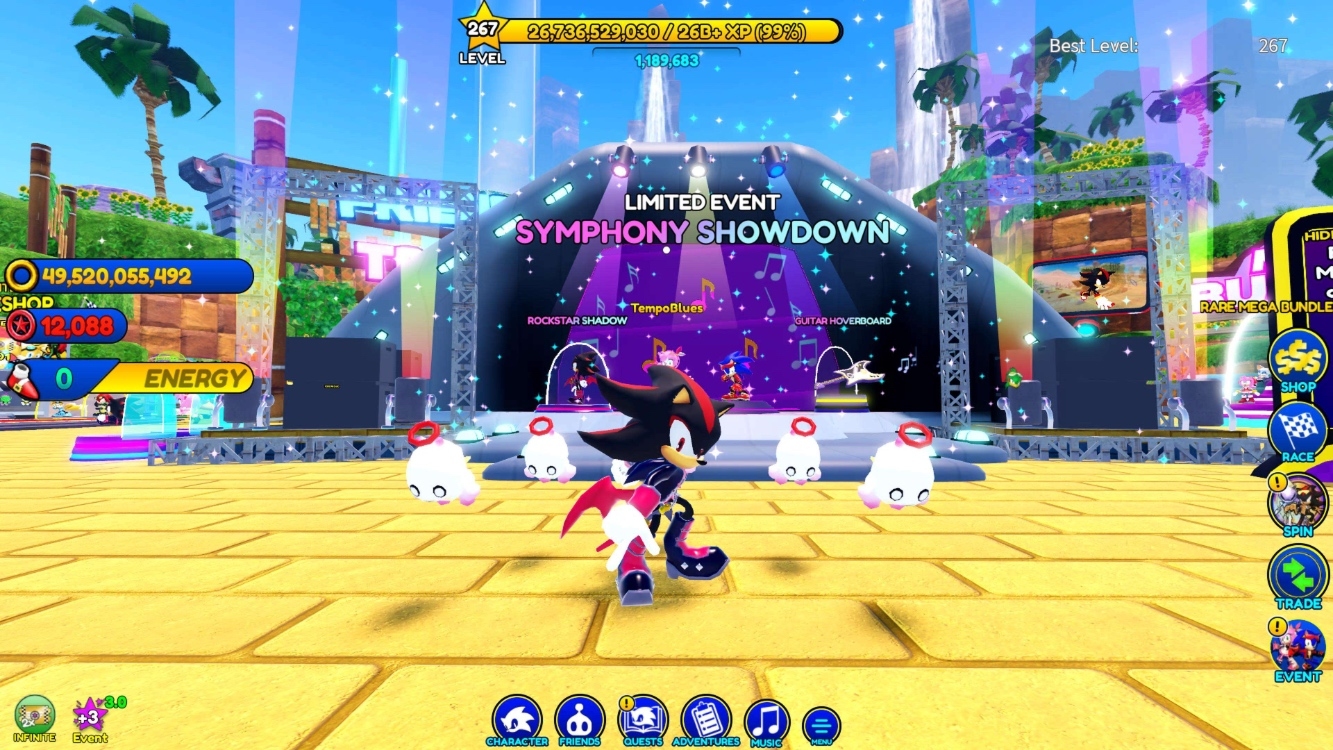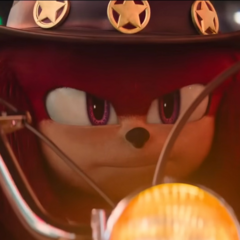[Archive] The Plight of Mobius, and the Politics of Gaming
Is Sonic a symbol for the *shudder* Conservative Party?
A mere forty-two years – an astonishingly brief period of time when compared to the lengthy gestation process of some technologies and industries – have elapsed since the first computer games were conceived of in the oppressive, muggy heat of mainframe chambers, but during it the practice of gaming has mutated, morphed, adapted and altered at an almost coherency-defying pace, sprawling out in scope and evolving inconceivably rapidly in complexity.
When I was born in that acclaimed vintage year of 1986, tens of thousands of faithful gamers were only just emerging from the confined cocoon of valiantly sacrificing innumerable hours labouring over the keyboard of a Sinclair Spectrum ZX81 with a nigh-illegible type-in listing from an overpriced magazine, hoping against hope to produce a game that would most likely implode the moment it was booted up, and nonetheless required quite a considerable leap of credulity and imagination to envisage that those orange rectangles yes, actually were Formula One racing cars. Now, even the computer illiterate can describe the significance of ludicrously high processor speeds, liquid nitrogen courses through the veins of tower boxes of feverishly-overclocked processors and a brief perusal of the Micro Direct product catalogue has thrust underneath my nose the rather imposing and intimidating title of the “Sparkle GF FX5700LE 128MB DDR 8X AGP DVI + TV-out Retail (SP8836LEDT-128MB)” graphics card package. In just forty-two years, computer gaming has been transfigured from being a peculiar academic oddity for bored physicists to indulge in (producing such seminal, if tragically obscure, foundations of gaming such as Tennis for Two and Spacewar) into a colossal, mammoth and gargantuan multi-national commercial enterprise that currently threatens to supplant films as the most profitable echelon of the entertainment industry.
Yet despite this truly phenomenal and arresting pace of change, some elements of the realm of gaming have remained a constant, enduring, persistent core and focus for the tradition, applying a tangible sense of permanency that is capable of affiliating Pong with Virtua Tennis and Space Invaders with NiGHTS Into Dreams... . However, not all of these particularly resilient components are desirable, for lurking amongst them is the malignant contagion of the perception of games in common society. The great and good have perpetually sustained a campaign of prejudice against gaming, and mocked and belittled it as a ‘juvenile’ and ‘immature’ medium. Games were first lambasted for being anti-social, a figurative factory-line spawning uncommunicative drones with finger arthritis. When this assertion was belied by the accelerating popularity of games, the rebuffed complainants changed tack and denounced games as either trite banalities or else maleficent, daemonic agents deliberately conceived by amoral programmers to degenerate the modern youth – the seemingly compulsive obsession of such people to stoop to the most dishonourable level of opportunism and seek to tar games with the blood of genuine public tragedies such as the infamous Columbine atrocity (and more recently in Britain the murder of Stefan Pakeerah) is one such example of this sustained campaign of abuse.
Now, being Conservative, I’m loathe to criticise authority, and when you witness the gushing, torrential deluge of reconstituted drivel being defecated by the abomination that is Sony, you have to admit that much of the criticism levied at games is quite fair. However, what I do resent is how gaming is not merely being misrepresented with broad brush strokes, but is veritably having the entire paint can hurled over it. It is irrelevant whether a game is a technological and scientific marvel, a splendid and magnificent feat of visual artistry, or a thought-provoking title rich in symbolism – the instant it is recognised as a computer game, it is treated like a leper. This is the reprehensible attitude that I excoriate most strongly.
After some 614 words, you may be understandably wondering how precisely this diatribe relates to Sonic, and I shall gladly explain. I was pondering how best to counteract the aspersions cast against gaming, when it occurred to me that our cherished, adored, and lauded ultramarine hedgehog would be, as he is with everything else, the perfect vector of retribution - what better manner in which to prove that games can contribute thoughtful, intelligent, intellectual commentary upon the situation and development of our world, in the tradition of our finest literature, than with one of the most prominent and distinguished figures of universal gaming? Thus, this essay was born.
I do not wish to be self-aggrandising, but I hope that this article can be utilised as a weapon in the rhetorical arsenal of a gamer to repel the forces that are intent upon suppressing his pastime. Whenever you are happily bounding through the Mushroom Hill Zone or whirling in a savage tempest before Perfect Chaos, and you find your mother leaning over you to sneer some falsehood about how computer games “rot your mind”, you can print this essay, thrust it under her nose, and challenge her to dispute how the promotion of an incisive and stimulating political discourse as is true of your beloved Sonic games could ever conform to her statement. Every time this is achieved, it will be a blow struck for the good of gamers everywhere in the world.
Sonic the Hedgehog – Rodent of the Right
When you next snugly plug in the solid cartridge or spin the gleaming CD of your favourite and most cherished Sonic title, and commence again your quest to liberate Mobius from the tyrannical clutches of Dr. Robotnik, I would challenge you to introduce some variety into your session by briefly pausing the game, gathering some respite from the impeccably-rendered scenery whipping past your character in an eye-watering welt of splendid colour, and meditate for this time upon this conundrum – is there something more to your game than gathering copious quantities of rings, hunting for the elusive iridescent gems of the Chaos Emeralds, and careening into and barrelling through assorted metallic automated monstrosities like an errant missile. What is the purpose of this game mechanic that we all indulge and rejoice in with a possessive, fanatical value?
Initially, the response may appear rather basic, obvious, and simple to conceive of – Sonic is engaging in a nobly altruistic endeavour of self-sacrifice, voluntarily risking the integrity of his own life to destroy the odious spectres of the repressive totalitarianism that Dr. Robotnik desires to shackle and bind the hapless inhabitants of Mobius to, and the shameless and blatant wanton pollution and ecological catastrophe which the notorious portly megalomaniac desires to smother the planet with in order to achieve his lunatic ambition. However, although railing against these two concepts is certainly the most prominent of themes that can be identified as being elevated and embossed into relief by the enormous variety of Sonic games, I do not believe that much significance should be attributed to them in your consideration of the abstract concepts that the game suggests. This may seem to be an irresponsible stance to adopt, but contemplate it further and you shall comprehend the basis for my objection to it – the two aforementioned points may indeed be accurate, but I must encourage you to recognise that usually intended metaphors and allegories are more subtle and communicated indirectly. It is a characteristic demanded by the terms’ very definitions!
One instance of the more buried comparisons and analogies that I am attempting to expose would be the hue of Sonic himself. His regal ultramarine colour can be attributed to the fact that it replicates Sega's logo - a reasonable conclusion, considering how he is the company mascot. However, what else does Sonic promote? His figure is a celebration of determined, undaunted and proud independence (recall that Sonic has been marketed as the "Hedgehog With Attitude" ever since his inception, and what else could be more potently independent than challenging the ascendancy an entire realm of hostility and adversity without aid or allies?) and personal achievement and success (despite the best efforts of a variety of puerile fans intent upon staining Sonic’s background with bloated 'Mary-sues', no-one is capable of matching Sonic's phenomenal and marvellous sprinting ability!), which with his blue quills all fuse together into an endorsement of the Conservative philosophy, which actively promotes such concepts and whose proponents are identified by blue livery. To emphasise this allusion, Sonic's natural habitat is invariably represented as a verdant, undeveloped, rural terrain, long considered and historically verifiable as the natural foundation of Right-leaning edifices and communities.
Contrast this righteous stance to the presentation of Dr. Robotnik and his vile and nefarious schemes - his ambition to transfigure all of Mobius's inhabitants into vacuous, robotic drones fulfilling a single collective purpose of manual servitude is highly indicative of the practices of egalitarianism and homogenisation that leftist entities coddle, dote upon, and fawn over so exasperatingly persistently. Furthermore, rather than having such sprawling agglomerations of industry as the Scrap Brain Zone or the Metropolis Zone being metaphors for the rather banal stance of cautioning people into promoting environmentalism (which I would sternly object to in any sense, because examining the colour palette for the Metropolis Zone reveals it to always be exceedingly 'clean' and prim - its tileset demonstrates oiled, immaculate efficiency, not grime-smeared fetid suffocation), why do we not instead recognise the classic socialist icon of lower-class urbanity in these vistas? To continue extending my cataloguing of the broad proliferation of links to leftist conceptions that the repugnant and despicable Dr. Robotnik and his steel imperium represent, you should recognise that the Doctor's corpulent form is the grandest example of the corruption-bloated, slovenly, staid and stagnant apparatchik whose breed infiltrates like a fungal contagion throughout governments of the left. More thorough investigation grants this trend even greater authority with more links - official SegaSonic literature quotes Robotnik's I.Q. as 300 - he thus also represents the wing of intellectuals (such as the Fabian Society) who espouse a worker's revolution yet have never actually completed a day's grafting for themselves in their entire lives (an allusion also elucidated from the obesity of our Doctor). The point which gels, welds, and fuses all of these disparate elements together and grants an authoritative endorsement of the accuracy of my inferences is Robotnik's garments - throughout all of his various incarnations, red has always been a dominant theme that characterises his garb, and has become even more strident since his excursion to the tailor’s in Sonic Adventure.
As if this damning list of negative affiliations required extension any further, I would also draw your attention to the manner in which Knuckles was introduced into the Sonic continuity with Sonic the Hedgehog III - he was a basically decent person who had been duped, confused, misled and deceived by the maleficent schemes of Robotnik. And what is the colour of Knuckles's hide...? Altogether, this shows the hopelessly blinkered and mistaken nature of those of the political left, all labouring under the gross and tragic misconception that they are aiding the establishment of perfection when, in actuality, they are promoting a horrendous, atrocious repulsive and despicable monstrosity.
I therefore conclude that the socio-political commentary provided by Sonic the Hedgehog is, in actuality, a sustained and defiant polemic - an electronic, interactive pamphlet emitting a powerful broadside condemning and humiliating socialism.
Yet would Yuji Naka ever have consciously designed that right-wing scenario? I can retrieve some examples of real-life justification for such a context as well - Japan has been consistently ruled by conservative governments of one form or another for over thirty years, rendering Naka-san’s links with it more probable. Furthermore, he never attended university, thus completely bypassing and circumnavigating what is notoriously the breeding ground for what does exist of Japan's fifth column. A final third signifier of his conservatism is his passion for cars – the fact that he drives a Ferrari with pride demonstrates that he is not shamed by personal gain through his own labour.
Conclusion
And there, displayed above you, is Sonic the Polemic – an armed, primed, and fuelled missile that can hopefully produce a force sufficient to blast aside the walls of injustice that are constantly striving and endeavouring to hem in, constrain, and strangle the gamesplayer. I realise that it is an unusual type of read for a gaming site, but I earnestly hope that everyone has discovered it an interesting one. As it is a political piece, it is probable that I have polarised criticism of it – there will be people that applaud my inferences, and equally there shall be another section that utterly loathes and detests them. If you want to either endorse or reject this dissertation, why not do so by expressing it on a comment thread on the SSMB? That such a work was capable of promoting a discussion substantiate gaming’s value even further.
Anyway - whether you regard the essay above as an engrossing discourse, or a shamelessly pretentious exercise in egoistical condescension, I wish good health to all of you, to the great Prince of gaming, Yuji Naka, and of course to the continued prosperity of Sega itself. May the True Way of Gaming continue on for evermore!
.png.58cfe414f117a5b917dfc7f637393e58.png)



.png.f768e442ba16f527fb60317d6b1d496d.png)







1 Comment
Recommended Comments
Create an account or sign in to comment
You need to be a member in order to leave a comment
Create an account
Sign up for a new account in our community. It's easy!
Register a new accountSign in
Already have an account? Sign in here.
Sign In Now